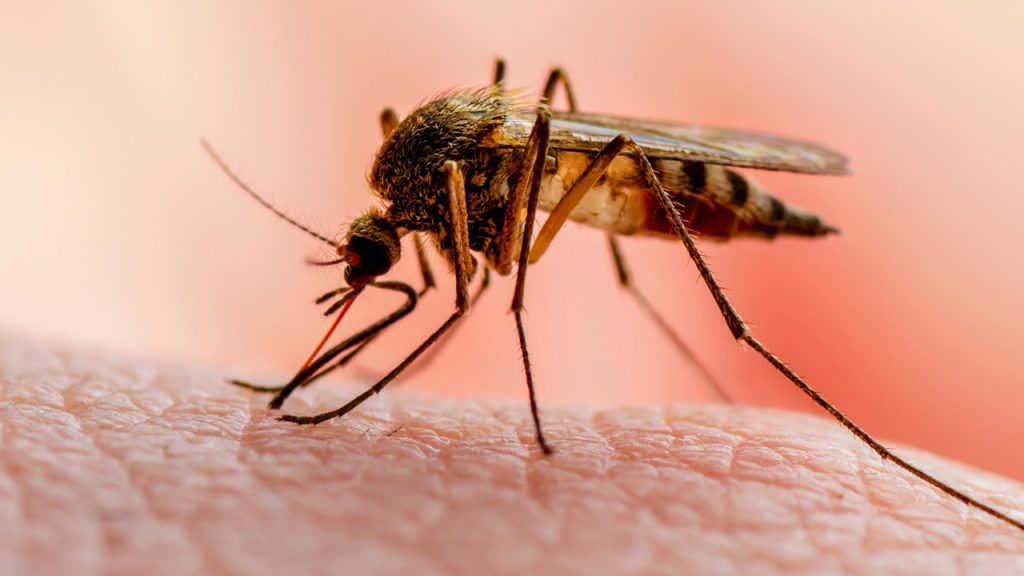Nigeria Contributes 31% of Global Malaria Deaths with Highest Prevalence in Kebbi
By Jerry Ochada
Nigeria contributes 31% of global malaria deaths in 2022 with Kebbi state recording the highest prevalent rate. This figure was revealed during the just concluded Media Chat organized by the National Malaria Elimination Programme (NMEP) held in Abuja.
The National Coordinator of the Programme, Dr Godwin Ntadom said that NMEP aims at achieving 10% malaria prevalent in Nigeria in 2025.
Responding to Journalists, Ntadon said the target can be achieved through the support of the media including other team players.
“We are walking round the clock reduce malaria to 10% prevalent in 2025. This is achievable; with your support we can achieve it “.
In another response concerning the high cost of malaria drugs, he said “most of the drugs are imported and it is giving room for the increase in price but it is cheaper in government hospitals”.
The Coordinator further revealed that only two countries have commenced usage of vaccines which are Kenya and Cameroon. He said Nigeria has subscribed to it and will soon commence vaccination in Kebbi and Bayelsa states as takeoff points.
Earlier in his remarks, the Head Advocacy Communication and Social Mobilization of NMEP, Raphael Onyilo highlighted the objectives of the chat which according to him is strategized to disseminate the right information on malaria prevention, diagnosis and treatment.
“The media must play a vital role by increasing their knowledge of the various Malaria preventive measures. Journalists should also ensure timely information get to the populace.
At the end of the meeting, each of the media house should be able to design a programme on malaria and also get adequate information about the relevant vaccine which is forthcoming. You can also call on us to discuss issues that concern malaria treatment,” he said.
Also speaking, the Director, Programme Management, Oyeleke David tasked journalists to sensitize the public on how to combat the health menace of malaria. He said that is why it is key for NMEP to network with the media to scrutinize our the activities of the programme through the dissemination of vital information.
Other keynote speakers like Dr Olushola Adeboye encouraged the media to reciprocate gestures by inviting NMEP to studios and events to discuss the issue of malaria prevention and control. She further anticipated that the forthcoming World Malaria Day on April 25 can be an epoch period to highlight the negative impact of malaria in the country. In conclusion, Adeboye encouraged human angle stories and writings on how malaria affects the people in the society.
On her part, Lovelyn Agbor-Gabriel, the Monitoring and Evaluation Manager of Civil Society in Malaria Immunization and Nutrition (ACOMIN) hinted that a lot has been happening as it concerns malaria prevention and control especially through partnership and fundings. However, she noted that most of these activities are not known because the media has not been harnessed enough. She concluded by encouraging journalists to showcase a balanced reportage.
Participants at the event were featured in a presentation by Owoya Samuel, titled,
“Improving Care-Seeking Behavior for Malaria Control: The Media as an Ally”.
In the course of the presentation, malaria burden in Nigeria and low prompt care seeking behaviors were pointed out as key factors affecting malaria control in Nigeria.
The World Bank including other partners are contributing to malaria eradication programme in Africa and particularly Nigeria. Again, areas with high population like Kebbi, Sokoto and Kano have high mortality rates because of the population of the region. Sadly, between 2018 to 2021, there was a considerable increase in the cases of malaria across the states.
One of the problems leading to high cases of malaria in Nigeria was attributed to low prompt care seeking behavior for fever which is a symptom of malaria and every other disease or infection. It also requires prompt and effective treatment to reduce disease burden.
Furthermore, the revised National Guidelines for the Diagnosis Treatment and prevention of Malaria recommends prompt visit to the hospital for patients complaining of fever which is traceable to malaria.
NMEP recommends visiting Government Hospitals and Private sectors instead of subscribing to self care by patronizing chemist stores. However, it noted that most pharmacies have malaria testing kits.
Highpoint of the event was a question and answer series with the National Coordinator of NMEP giving a deeper perspective to the participants.






